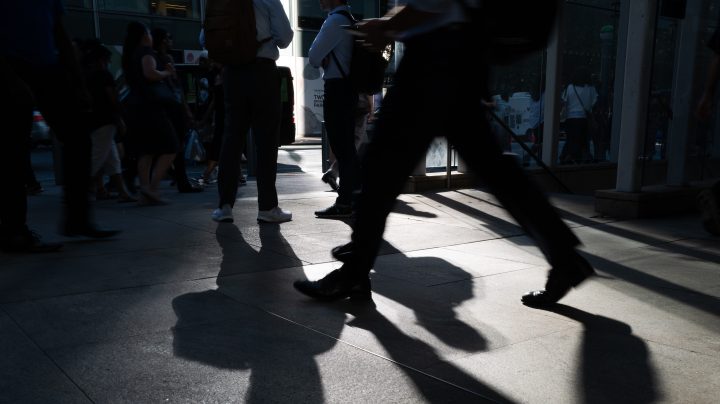
American workers are bummed out

We’ve heard plenty about the “great resignation,” quiet quitting and even some louder quitting. The rate of workers leaving their jobs is near a record high, much higher than any time before the pandemic, going back 20 years and more.
We have more evidence for why there’s so much churn and dissatisfaction, this time courtesy of a new survey by payroll and human resources firm UKG — which is a Marketplace underwriter. It finds workers are not a very happy bunch right now.
Half of American workers wouldn’t recommend their job or employer to someone they care about, like their own kid. More than 4 in 10 wouldn’t wish their job on their worst enemy.

“Folks are really burnt out at this moment. One of the stats was 45% don’t want to work anymore, period,” said Chris Mullen, executive director of the UKG Workforce Institute.
With co-workers leaving for new jobs and careers or to spend more time with family, remaining workers often feel underappreciated and overworked. “Folks really want to have an enjoyable experience,” Mullen said.
So, how come we’re not enjoying ourselves?
Well, one reason may be raised expectations. Over the past two years, many workers were provided more flexibility and accommodation by their employers — at least those who don’t work in face-to-face essential-service jobs.
They’ve been able to work how, where and sometimes even when they want, according to Carl Van Horn, director of the John J. Heldrich Center for Workforce Development at Rutgers University.
“Like, I want to live in Portland, but my employer’s in New York City. ‘OK, fine, go ahead and do that,’” he said. “Now, of course, employers are pushing against that expectation, and a lot of employees are saying, ‘Nah, I’ll find someone else who gives me that flexibility.’”
Another thing bumming out workers these days, according to Peter Cappelli at the Wharton School: knowing someone you used to work with is doing better than you.
“You’re hearing these stories about employers bidding up wages elsewhere and allowing people to work remotely, and you can’t do those things, and suddenly you feel worse off.”
Especially, it turns out, if you already make a good salary.
“The workers most dissatisfied with their jobs right now are “people who make between $100,000 and $200,000,” said UKG’s Mullen. “Pay is a little bit less relevant than my manager, my company culture, do I find meaning at work?”
On the other hand, lower-income workers are more focused on finding adequate pay and hours and a safe place to work.
There’s a lot happening in the world. Through it all, Marketplace is here for you.
You rely on Marketplace to break down the world’s events and tell you how it affects you in a fact-based, approachable way. We rely on your financial support to keep making that possible.
Your donation today powers the independent journalism that you rely on. For just $5/month, you can help sustain Marketplace so we can keep reporting on the things that matter to you.

















